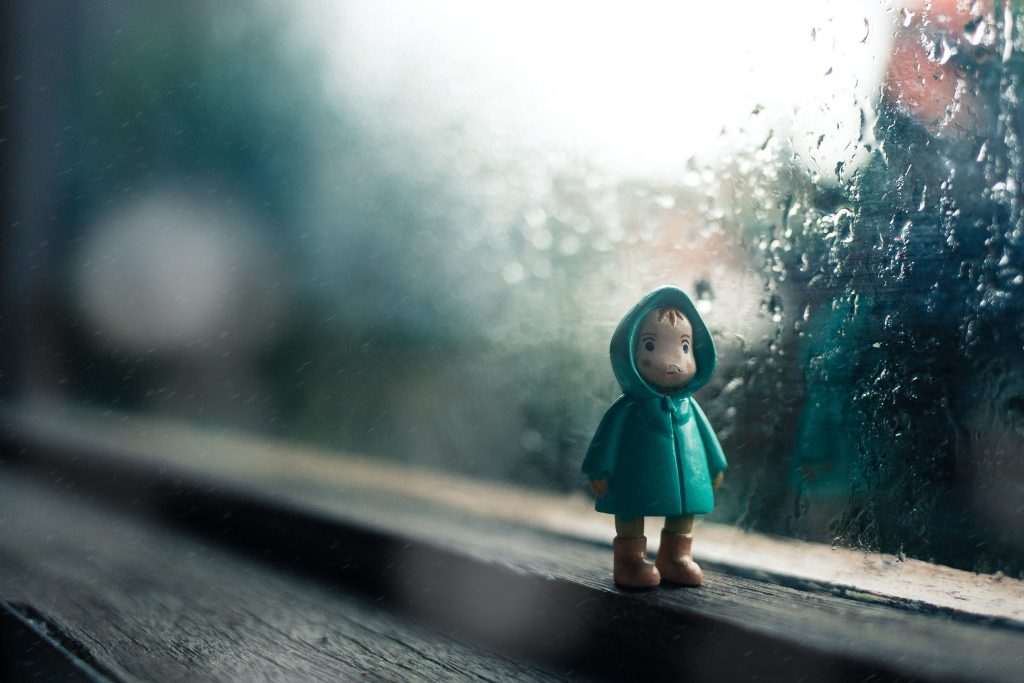Singleness can be a challenge. Chronic illness can be a challenge. Put them together and you get a gooey, volatile, explosive and, I’m pretty sure, radioactive mound of difficult. But it’s OK, because if you struggle with both of these things like I do, or know someone who does, I’m going to give you all the answers for a successful, happy life.
Just kidding. Actually, I think I’m just here to make you feel less alone, and that’s often more important than untested recipes for success. So let’s do this.
Self-Sufficiency Required
Singles often don’t get to “share the burden” where a lot of regular tasks are concerned. Things like changing the oil in the car, taking out the garbage, carrying grocery bags inside, making dinner, walking the dog, being there when the plumber comes… they’re all done solo. And that’s fine — until I have a series of rough days and things start to pile up.
I have a chronic stomach disorder, which means some days I feel fine, and others I am in a lot of pain. During the rough times, I can be so exhausted that I don’t have the energy to do simple things, or I have to prioritize some activities over others. Garbage piles up; I’m unable to shovel the snow around my car, so I can’t go anywhere even if I want to; I run out of groceries and stop eating healthily, etc.
There are many other common worries that plague people with chronic illnesses: Will I be able to keep a job? Can I make it through the day out of the house? What if I need more finances for health care? How do I deal with feelings of depression, anxiety, helplessness, and other negative emotions that come hand-in-hand with being sick on a regular basis?
The thought of having someone there to help with those little things is appealing. Sometimes I wish I didn’t have to call for a friend’s help, but instead someone would already be around to know that I need it. In the past, I’ve been afraid that no one will be able to empathize with my situation, and I’ve agonized over burdens that could be lightened with help. However, the nice thing about true friends is that they are there when I call; I just have to put aside my pride and ask.
Dating’s a Hassle
It’s annoying enough when I have to tell my friends last minute I can’t make it to an outing; but when it’s a boyfriend I’m abandoning, it feels even worse. Skipping out on dates can send all sorts of mixed signals, at least at the beginning of a relationship. And later on, if he makes it through that mess, he still has to deal with the fact that my schedule is unreliable.
Then there’s the whole “how do I bring it up?” debacle. Chronic illness is not exactly first date conversation material. I might mention in passing that I get sick a lot or have a bad immune system, but I’m not about to go into details about cramps, bloating, and pain that rivals childbirth (I can’t personally compare the two, but that’s what my mom tells me — she has IBS too).
If I’m not feeling well before the second or third date, I’ll often push myself to go anyway to avoid sending the wrong message. It’s not that I’m ashamed of my illness, but I know how difficult it is to understand for someone who doesn’t experience pain on a regular basis; those conversations have to happen after there is some trust built. Balancing all these details can be just plain stressful, and ask anyone with a chronic illness — stress does not help. Not one bit. It can make us more tired. It can even make us more sick. Piling dating concerns on top of the stress surrounding illness is hard, and sometimes I just don’t have the energy for it.
The Fear of Burdening Others
I feel guilty asking someone else to share the burden of chronic illness with me. I didn’t choose it, but my partner would be. Why should I weigh down someone I care about with my physical problems?
The root of this issue is fear, and I do well to remember that I am not the only one with problems that need to be dealt with in a relationship. Just because another woman’s struggles look different than mine doesn’t mean she will make a “better” girlfriend than I will. Relationships are always going to be hard because we are all broken people.
Feeling Worthless
I notice a lot of online dating profiles describe the ideal woman with words like “active,” “loves adventure/travel/the outdoors,” “athletic,” and “healthy.”
I am out of commission, useless. I am other. I don’t fit. Those are the thoughts that go through my mind when I see those expectations. (I also think putting requirements like that on a profile are ridiculous, but still, those descriptions don’t help my self-esteem.)
Our culture doesn’t have a natural place for sick people. It doesn’t know what to do with them, how to treat them, how to incorporate them into society.
“Suffering people already have misgivings about their place in the world,” says Philip Yancey in “Where Is God When It Hurts?” “Often they must stop working, and the fatigue brought on by illness or treatment makes every action more difficult and tedious. And yet, like all of us, they need to cling to some assurance that they have a place, that life would not go on without a bump if they simply disappeared, that the checkbook would go unbalanced except for their expert attention.”
Learning to feel valued outside of what others think of you can be difficult. Knowing you are cared about simply for being you, regardless of whatever failures your body is going through, is powerful.
Those who care unconditionally — they exist, I promise. For me, they can be found in trusted friends and family, in my church, in online communities, and in a God who promises to love me the way I am.












